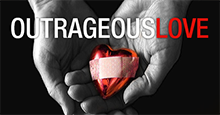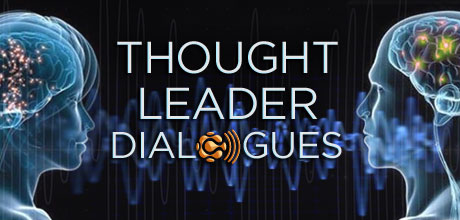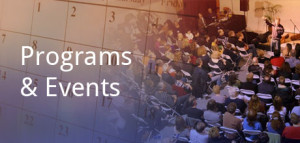Personal Reflections, Perspectives, and Most Elaborate Statement
by Dr. Marc Gafni
I wish that I could show you
When you are lonely
Or in darkness
The astonishing light
Of your own Being.
– Hafiz
********
My journey during these past two years has been long, exhausting, shattering, yet at times, exhilarating. This post is not the place to write about all that.
At the right time, I may publish a deeper personal reflection on all of this. There, I will explore the spiritual, social, and sexual issues at stake in all that has happened with as much depth and heart as God will grant me.
However, I will not mention anyone by name, either implicitly or explicitly. So, no one needs to fear being exposed or attacked, unless their future actions leave me with absolutely no choice.
In this post, I mean simply to respond gently to certain issues, set the record straight on others, and leave still others alone. My guiding principle in responding has been, “Do no harm.” After much soul-searching, I have decided not to wield the sword in this post, or indeed, if possible, at any time. There is no mud on the high road.
Whatever anyone may or may not have done to me, I am committed to the extent possible and appropriate not to respond in kind. For example, several of the people who have attacked me publicly have had their own sexual complexity, and engaged in their own post-conventional relationships. It is likely that their own fear of exposure has shaped their actions and reactions to me, and prompted them to want to distance themselves from me. Fear is a powerful shaper of human behavior.
Nonetheless, it is not my right to expose anyone else’s private sexuality, and I will not do so. So, to all the folks who have sent me prurient material about some Jewish leaders and well-known and lesser-known spiritual teachers who have spoken or written against me you have sent the material to the wrong person. I have thrown all of it in the trash.
********
Two of my guides on this journey have been Hafiz and T.S Eliot. I will intersperse my writing below with their voices, as they have been my friends and intimate guides.
I want to say something about my guides and friends along this path.
When this all happened, I made a commitment together with a close friend not to “do anything.” I wished, as much as possible, to move from doing to being, from the ‘masculine’ mode to the ‘feminine’ mode. Not that one is higher or better, but because the taste for intense activity which had guided my life had become bitter. The universe had shattered me into being. So, the commitment was that I would not initiate contact for 18 months with anyone whom the Kosmos did not in some way invite me to contact. I would not initiate relationships. Only to those people with whom I had some sudden, new, and intense contact during the time immediately before the trauma would I reach out. My heart told me that these were the people who had been sent by the universe as my friends and guides. And that is how it was.
The Persian poet Hafiz guided me in that and in many other moments on this journey.
What is the difference
Between your experience of existence
and that of a saint
The Saint knows
That the Spiritual path
Is a sublime chess game with GodAnd that the Beloved
Has just made such a Fantastic MoveThat the saint is now continually
Tripping over Joy
And bursting out in Laughter
And saying, “I surrender!”Whereas, my dear,
I am afraid you still thinkYou have a thousand serious moves.
********
As we all know, the blogosphere is currently used in many different ways, some of them wildly beautiful, others wildly problematical. Many conversations that should have been kept private now take place on blogs, thus preventing deep and healing conversation and producing instead diatribe, demonization, and distortion.
I have, after looking into my heart, praying about it, and collectively consulting a group of some twenty-five spiritual friends, colleagues, teachers, students, and guides, decided not to engage on the blogosphere.
I have responded in depth and detail, sharing my heart and process, with almost every person who has contacted me directly with a genuine desire to inquire, learn, share, or heal. However, I have not responded, nor will I do so, to writers in various public forums who have drawn conclusions without troubling themselves to hear multiple perspectives on what went down almost two years ago in Bayit Chadash (the movement that I founded and led in Israel for a period of about six years).
People who acted, with what were for a time devastating consequences for me and my family, without talking to me without hearing what I might have to say acted for a variety of complex motives, different in every case. There does not seem to be a vessel for conversation so I will not engage them in this writing. I love some of those people very much. But love requires a vessel. I pray every day that at some moment such a vessel will present itself.
I am writing here to the many people who have contacted me, and to whom I have previously felt free to respond in full. I write here also to the many people who may have wanted to be in touch but did not have my e-mail or address, which, while public and available, may have eluded them.
So, perhaps before I share let me share my address. You can write me directly at info@marcgafni.com.
********
As I move forward, dear friends, I’d like to share a few final reflections about the last two years and the explosion that led up to it.
For the past two years, I have not been able to go more than a short time without being overwhelmed by sharp pangs of pain, suffused with tears. I feel devastated anew each day by the radical and complete nature of certain betrayals. There is something so terrible and devastating about being betrayed by close friends; words cannot hold the immensity of the pain. One can, of course, only be betrayed by people one is certain could never betray one. It is only Judas, the most trusted and beloved of Jesus’ friends, who can betray him. Betrayal is intimately bound up with love and trust. Yet, paradoxically enough, it may be that we can be reborn only after having been betrayed. Perhaps it is only when all the cords we have attached to others are fully disentangled when our mothers and fathers have abandoned us that God can gather us up.
I remember a thousand conversations I had with the small group of people who were part of my inner circle. They were conversations of love, commitment, trust, and radical intimacy. Conversations of beauty. Conversations in which we asked each other to hold in precious safekeeping our fragility and vulnerability.
There was never any sense between us that anything transgressive was happening. Holding privacy did not mean that we felt that anything wrong was happening. It was simply a precaution, a way of holding a container to prevent anyone from being able to misconstrue or distort the nature of the relationships. All of the extensive documentary material between these people and myself confirms that all of us, at the time, felt the relationships to be beautiful and good, not ethically wrong in any sense at all.
I never had any idea that, even in the worst of circumstances, anyone could act as some people apparently did. I did not protect myself against them because I could not imagine that they would try to hurt me. I held my private life privately for fear it might be distorted, but never dreamed that the distortion might mean a shattering of a magnitude even vaguely similar to what took place. No part of me expected anything like what happened. Each time I think of it, a part of my heart is wounded, pierced, and stabbed anew. I experienced my death at the hands of those I loved a thousand times in my dreams, in the hallucinations of my waking hours, and in the indelibility of traumatized memory.
Through all of it, but one prayer remained on my lips: God do not take away my ability to love. God do not make me bitter. Allow me to die into your arms and be reborn in your bosom, to do your will in love, in any and every way in which you command me.
T.S. Eliot held my hand, and St. Francis of Assisi held both my heart and my hand.
T.S. Elliot’s “Four Quartets (East Coker, Part |||):
I said to my soul, be still, and wait without hope
For hope would be hope for the wrong thing; wait without
love,
For love would be love of the wrong thing; there is yet faith
But the faith and the love and the hope are all in the
waiting.
Wait without thought, for you are not ready for thought:
So the darkness shall be the light, and the stillness the
dancing.
Whisper of running streams, and winter lightning.
The wild thyme unseen and the wild strawberry,
The laughter in the garden, echoed ecstasy
Not lost, but requiring, pointing to the agony
Of death and birth.You say I am repeating
Something I have said before. I shall say it again.
Shall I say it again? In order to arrive there,
To arrive where you are, to get from where you are not,
You must go by a way wherein there is no ecstasy.
In order to arrive at what you do not know
You must go by a way which is the way of ignorance.
In order to possess what you do not possess
You must go by the way of dispossession.
In order to arrive at what you are not
You must go through the way in which you are not.
And what you do not know is the only thing you know
And what you own is what you do not own
And where you are is where you are not.********
here were times, and not a few, when I felt thrown out of all places. One Friday evening in Salt Lake, I went with my friend Dalit and her two children to eat at the home of a Jewish family. We had eaten there several times before. It was not a place in which I had a close connection or relationship. It was more of an open house, a Friday evening event, that I went to in order to give Dalit’s kids an experience of community and Shabbat. The host called me over in the midst of the meal and said, “Take a walk with me outside.” “Sure,” I replied. We walked. He was silent. Then he said, “You cannot come back. One of our guests has read on a blog that you are a ‘confessed child molester.’ I know that this is malicious nonsense. We have discussed this before. I tried to explain to her that this was nonsense. But she would not listen. You may never come back to our house.”
I could not quite believe my ears. As I walked back into the house, it was clear that everyone present knew that this conversation was taking place. They all averted their eyes. I had never known the experience of the leper. The falsely accused. The contaminated one.
At that moment people’s eyes bore into my back as if I was God forbid a rapist or a child molester. And my heart broke for all who are wrongly rejected and detested by a society filled with fear. I felt the pain of the falsely accused, of all those who die in prison innocent, with no one to hear their pleas. I felt the pain also of those who are rightly rejected because they present a genuine danger. For, had we grown up in the brutality of their lives, who knows how our souls might have been formed? The pain was so intense that I fell on my bed unable to move for most of the night.
But then, slowly, something shifted. A quiet yet unmistakable joy began to fill me. The image that filled my heart was that of the Hassidic masters who wandered the back roads of Europe. Often unrecognized they would be thrown out of all places of culture and learned society. In being rejected and thrown out, they were (according to their own testimonies) able to redeem the sparks of the Shekinah in exile. The Hassidic master was the servant of the sacred feminine. He liberated her by being thrown out of the company of good men just as she was thrown out of masculine culture and society, driven as it was by greed, ignorance, and fear.
I began to understand that here I was, wandering the back roads of Utah, invited to be as I always was in the tradition of the great rebbes whom I love and revere. But not merely in the public and obviously delicious ways that I had been allowed to serve before at prayer service, giving talks on wisdom, and receiving and loving people, but also in the hidden and more brutal byways of life. I was being invited, in fact, demanded by God to redeem the sparks of the sacred feminine, in myself, in relationship, in Torah, and in culture. And as morning rolled into afternoon, I began to dance. Slowly at first, but gradually building into a sweet ecstasy the like of which I had never known.
That Sunday I had occasion to speak to a beloved friend, Brother David Steindl—Rast. I told him the story of that Sabbath. He introduced me to a story about St. Francis of Assisi called Perfect Joy. A beautiful gift from a gorgeous man.
And then when I felt thrown out of all places, St. Francis picked up my shattered heart and guided me to joy. Not always, but sometimes, and that was enough.
Perfect joy according to Saint Francis of Assisi:
How Saint Francis, walking one day with brother Leo, explained to him which things are perfect joy.
One day in winter, as Saint Francis was going with Brother Leo from Perugia to Saint Mary of the Angels, and was suffering greatly from the cold, he called to Brother Leo, who was walking on before him, and said to him: “Brother Leo, if it were to please God that the Friars Minor should give, in all lands, a great example of holiness and edification, write down, and note carefully, that this would not be perfect joy.”
A little further on, Saint Francis called to him a second time: “O Brother Leo, if the Friars Minor were to make the lame to walk, if they should make straight the crooked, chase away demons, give sight to the blind, hearing to the deaf, speech to the dumb, and, what is even a far greater work, if they should raise the dead after four days, write that this would not be perfect joy.”
Shortly after, he cried out again: “O Brother Leo, if the Friars Minor knew all languages; if they were versed in all science; if they could explain all Scripture; if they had the gift of prophecy, and could reveal, not only all future things, but likewise the secrets of all consciences and all souls, write that this would not be perfect joy.”
After proceeding a few steps farther, he cried out again with a loud voice: “O Brother Leo, thou little lamb of God! If the Friars Minor could speak with the tongues of angels; if they could explain the course of the stars; if they knew the virtues of all plants; if all the treasures of the earth were revealed to them; if they were acquainted with the various qualities of all birds, of all fish, of all animals, of men, of trees, of stones, of roots, and of waters write that this would not be perfect joy.”
Shortly after, he cried out again: “O Brother Leo, if the Friars Minor had the gift of preaching so as to convert all infidels to the faith of Christ, write that this would not be perfect joy.”
Now when this manner of discourse had lasted for the space of two miles, Brother Leo wondered much within himself; and, questioning the saint, he said: “Father, I pray thee teach me wherein is perfect joy.” Saint Francis answered: “If, when we shall arrive at Saint Mary of the Angels, all drenched with rain and trembling with cold, all covered with mud and exhausted from hunger; if, when we knock at the convent gate, the porter should come angrily and ask us who we are; if, after we have told him, “We are two of the brethren,” he should answer angrily, “What ye say is not the truth; ye are but two impostors going about to deceive the world, and take away the alms of the poor; begone I say;” if then he should refuse to open to us, and leave us outside, exposed to the snow and rain, suffering from cold and hunger till nightfall then, if we accept such injustice, such cruelty and such contempt with patience, without being ruffled and without murmuring, believing with humility and charity that the porter really knows us, and that it is God who maketh him to speak thus against us, write down, O Brother Leo, that this is perfect joy.
And if we knock again, and the porter should come out in anger to drive us away with oaths and blows, as if we were vile impostors, saying, “Begone, miserable robbers! To the hospital, for here you shall neither eat nor sleep!” And if we accept all this with patience, with joy, and with charity, O Brother Leo, write that this indeed is perfect joy.
And if, urged by cold and hunger, we knock again, calling to the porter and entreating him with many tears to open to us and give us shelter, for the love of God, and if he should come out more angry than before, exclaiming, “These are but importunate rascals, I will deal with them as they deserve;” and taking a knotted stick, he seizes us by the hood, throwing us on the ground, rolling us in the snow, and shall beat and wound us with the knots in the stick if we bear all these injuries with patience and joy, thinking of the sufferings of our Blessed Lord, which we would share out of love for him, write, O Brother Leo, that here, finally, is perfect joy.
And now, brother, listen to the conclusion. Above all the graces and all the gifts of the Holy Spirit which Christ grants to his friends, is the grace of overcoming oneself, and accepting willingly, out of love for Christ, all suffering, injury, discomfort and contempt; for in all other gifts of God we cannot glory, seeing they proceed not from ourselves but from God, according to the words of the Apostle, “What hast thou that thou hast not received from God? And if thou hast received it, why dost thou glory as if thou hadst not received it?” But in the cross of tribulation and affliction we may glory, because, as the Apostle says again, “I will not glory save in the cross of our Lord Jesus Christ.” Amen.”
********
However, for me the way through the hardest of times came from the book of Psalms. I tried meditation, taking refuge in the Buddha, as my colleague Genpo Roshi suggested. This was my path from May until July or August of 2006. I prayed. I had never been one for prayer. Mostly, because I loved to pray so much that when I would start I would so often fall into a kind of rapture that was hard for me to resist. So I denied myself all too often the gorgeous luxury of prayer. My feeling was that my life in every waking and dreaming moment was prayer. But at this time I began to pray again.
But more than anything, I read psalms. By myself, in my apartment at night before I went to sleep, and when I could not sleep. With Dalit. And by myself again.
God in the second person. King David, in the subtle passages of power and complexity, agony and ecstasy, that make up Psalms understood me. More then anyone else I felt connected, loved, and understood by the energy of King David.
He held me, gathered up my tears, and confirmed my very being.
It was in David that I found the paradox of anger, outrage, and political perception brought together with broken heart, radical responsibility, grace, and hope. Reading Tehillim psalms almost every night in torrents of tears kept me alive and sane.
********
Slowly and gradually, the processes that I have engaged, the spiritual practices which guide my days, beautiful friends, and the gift of grace, have transmuted this pain. Slowly and gradually, I am emerging from a tunnel of such utter blackness and despair that I find it difficult to share or describe.
Slowly and gradually, what initially looked like radical darkness is beginning to show faint glimmerings of light. What initially seemed to be utter slavery now reveals slivers of liberation and freedom.
What was at first, for months on end, the most constricting and narrow of places is beginning to open, and I, once again but in a whole different way, begin to walk in the wide places.
My soul yearns for the wide places.
My life was for many years marked by victory after victory. The pleasure of accomplishment, loving, creativity, and manifestation were my chief joys.
Surging forward in imitation of the divine explosion of creativity was the nobility which I sought to incarnate in the service of the divine.
Then, in one fell swoop, my life was defeated. The only possible direction was inwards. A movement of radical contraction and recoil. Tzimtzum, in which all that I was holding needed to be let go.
I was defeated by life. Yes Yes Yes became No No No.
And in this defeat was the seed of new joy.
I have been defeated by life and feel reborn in the very ashes of defeat.
A man whose psychological work has been one of the touchstones on this journey, sent me a poem by Rilke sometime after I completed his “process.”
Rilke has walked me through, and I am grateful. I have become the witness.
The Man Watching
I can tell by the way the trees beat,
after so many dull days, on my worried windowpanes
that a storm is coming,
and I hear the far-off fields say things I can’t bear without a friend,
I can’t love without a sister.
The storm, the shifter of shapes,
drives on across the woods and across time,
and the world looks as if it had no age:
the landscape, like a line in the psalm book,
is seriousness and weight and eternity.What we choose to fight is so tiny!
What fights with us is so great!
If only we would let ourselves be dominated
as things do by some immense storm,
we would become strong too,
and not need names.When we win it’s with small things,
and the triumph itself makes us small.
What is extraordinary and eternal does not want to be bent by us.
I mean the Angel who appeared to the wrestlers of the Old Testament:
when the wrestlers’ sinews grew long like metal strings,
he felt them under his fingers like chords of deep music.Whoever was beaten by this Angel (who often simply declined the fight)
went away proud and strengthened
and great from that harsh hand,
that kneaded him as if to change his shape. Winning does not tempt that man.
This is how he grows:
by being defeated, decisively,
by constantly greater beings.********
What I Have Done During the Past Two Years
When a tragedy takes place, we seek to understand it. It is in understanding that we find some measure of comfort and safety. If we understand what happened, we can potentially avoid the tragedy next time around. If we understand the tragedy, we can extract meaning from the chaos, and depth and direction from what seems at first glance to be senseless carnage. We humans are condemned to the glory and pathos of meaning.
Some two years ago a terrible tragedy took place in my life. A movement of teaching and spirit, which I had initiated in Israel, suddenly ended. The cause of the ending: complaints of sexual harassment, which were publicized in the Israeli media and the blogosphere.
I first heard of the complaints when I stepped off an international flight into what can only be described as a cruelly orchestrated ambush. Thinking I was going to be picked up at the airport by my girlfriend, whom I loved and intended to marry, I was confronted instead by the report that complaints of sexual harassment had been filed by two people whom I knew well, and by a third person I had known some ten year earlier.
I had no doubt that the complaints were false. I had not sexually harassed anyone. I had not made any false promises of marriage or anything similar. I had not used my authority as an employer to explicitly, or in any implicit way, gain sexual favors. It took months for me to discover, with the help of some friends who had been present, what had actually happened. Only slowly did I begin to understand who had initiated the process, who had encouraged it, and what persons came together to create the volatile combination that in one fell swoop ended almost a decade of virtually non-stop investment of heart and life energy effort of the kind necessary to create the movement.
On that night and the weeks following, all was a blur of pain and tears. In a desire to stop the madness, I wrote a letter taking the responsibility for any and all sickness that had appeared in the system that I created upon myself.
In the twenty-four months following, I engaged in three activities. First, a grief so intense and a pain so sharp that I will not attempt to describe it here overwhelmed me.
Second, I looked carefully into the all-important question of Why. Why did this happen? What was it in me that allowed it to occur? How were my relationships flawed? I placed particular emphasis on finding out my own part in the contribution system that led to these events.
Because of the false and libellous claims made on the internet, that were very sadly encouraged and quietly literally, directly orchestrated and manipulated by bad actors behind the scenes, it was not possible to have any contact with the parties themselves that had made the false claims. So the weight of my process was an internal one. Part of this process was in formal settings, and part was in private spiritual practice with spiritual friends and teachers.
Third, together with a group of friends and supporters, I gathered a team of professionals to bring together the necessary material to establish that the complaints reported in the media were categorically false. This process required almost 18 months of time and was fully successful. Now that this material is available, I prefer not to deploy it but rather to engage from a place of open heart in a healing process with the parties involved. Unless absolutely necessary, I cannot see how reopening these issues would serve. If there is no choice, I will engage it, however, if we can avoid it and simply get on with constructive living and service, that seems immensely preferable for all concerned.
These three processes have now ended.
My energy and strength have slowly returned, thank God.
I am now beginning a fourth process:
To put on paper the teachings which have burned their way into my heart in the long days and longer nights of these past two years.
The intensity of the pain took me to places I never dreamed possible.
Let me state clearly at the outset that none of the teachings will mention specific people either directly or indirectly.
Rather the teachings are about the broader and deeper issues that have emerged and clarified for me.
Perspectives
One of the key areas that became clear to me was that in any drama there are at least several different perspectives from which the events can be viewed.
In Hebrew wisdom, we are fond of saying ‘Shivim Panim LeTorah.’ In my translation, which I will not elaborate on here, that means something like ‘Seventy Faces of Enlightenment.’ This means that if one can look at the same story in seventy different ways, fully inhabiting seventy different perspectives on the story, then one has moved an important step towards enlightened consciousness. The pivoting point that moves us from ego-centered personal consciousness to divine-centered enlightened consciousness is the ability to move with maximal fluidity between perspectives.
The deep definition of idolatry in Hebrew wisdom is being locked in one particular value or view.
In this story one can take many different perspectives. Holding all of the perspectives together begins to shed light on what happened. It begins to allow the full grace of the story to emerge in all of its meaning and magnificence. Becoming locked in only one perspective, on the other hand, darkens vision and usually leads to profoundly distorted and unethical actions in the world.
In one of the books that I am currently preparing, I try to retell the story in ten different ways, each time from a radically different perspective. Each time the reader senses that he or she has grasped the story, the perspective shifts again. At the entrance to the Garden of Eden there is, according to tradition, a revolving sword of fire. The sword, which draws sharp distinctions and establishes right and wrong, is the archetype of the firmly entrenched perspective. In order for one to be able to enter the Garden, the sword of fire needs to be continually revolving: in short, constantly shifting perspectives are the entry ticket to the Edenic consciousness of enlightenment.
In truth, this story is really just like every other significant and complex life story.
By understanding the twenty-one possible perspectives, one may potentially obtain the twenty-one keys to enlightenment.
You will notice that different systems and different people tend to focus on different perspectives, each one giving priority to a different view. A more enlightened view would be to hold all the perspectives together and to let a nuanced and compassionate view emerge from the integration.
What is critical to note at the outset, however, is that not all perspectives are equal. There is clearly a hierarchy of perspectives. In some situations, for example, ninety percent or more of the story is best explained from the injustice perspective. However, if one adopts only that perspective, one remains a victim. It is only in developing the other perspectives, through which one may have more power and influence, that one can begin to move from being a victim to a responsible player.
While I will not list the perspectives here, I do discuss them briefly in my Dialogue with Dr. Cindy Lou Golen and Sally Kempton, which is found in the Dialogues section of this site.
Apologies That We All Might Owe Each Other
Guided by a group of four spiritual friends who are all significant teachers in their own right, I have written letters of apology where appropriate and possible to anyone I feel I might have hurt in the course of my life.
If I have not written you and you feel I should have, please contact me and we can discuss the matter.
Anyone who feels that they might owe me such an apology is welcome to write me as well. There are some people with whom I would have liked to be in contact, however, once complaints were filed I was proscribed from making any contact with them.
Guided by the best spiritual, psychological, and legal advice available, I have decided that it is time to move on.
I have treated the events of the last two years as a death.
I have engaged in full life review.
I have engaged in a significant and serious process of internal reflection.
I have lived in the pain and the regret daily.
As well as in the joy, the gratitude, and the grace.
My heart is open once again.
I have made a commitment to transparency where appropriate about my personal life.
Torah is flowing in my soul. Texts and chants burst from my being.
I am filled with great love and desire to help people, to share the torah of liberation and grace with whoever wants to learn.
I am filled with a burning desire to work with a group of friends in developing a new movement of social activism and political engagement, which will address three major issues. I will share in this regard at the appropriate time.
I have pages and libraries of books welling up in me pleading to be put on the page.
And Torah to share that dances in my heart.














